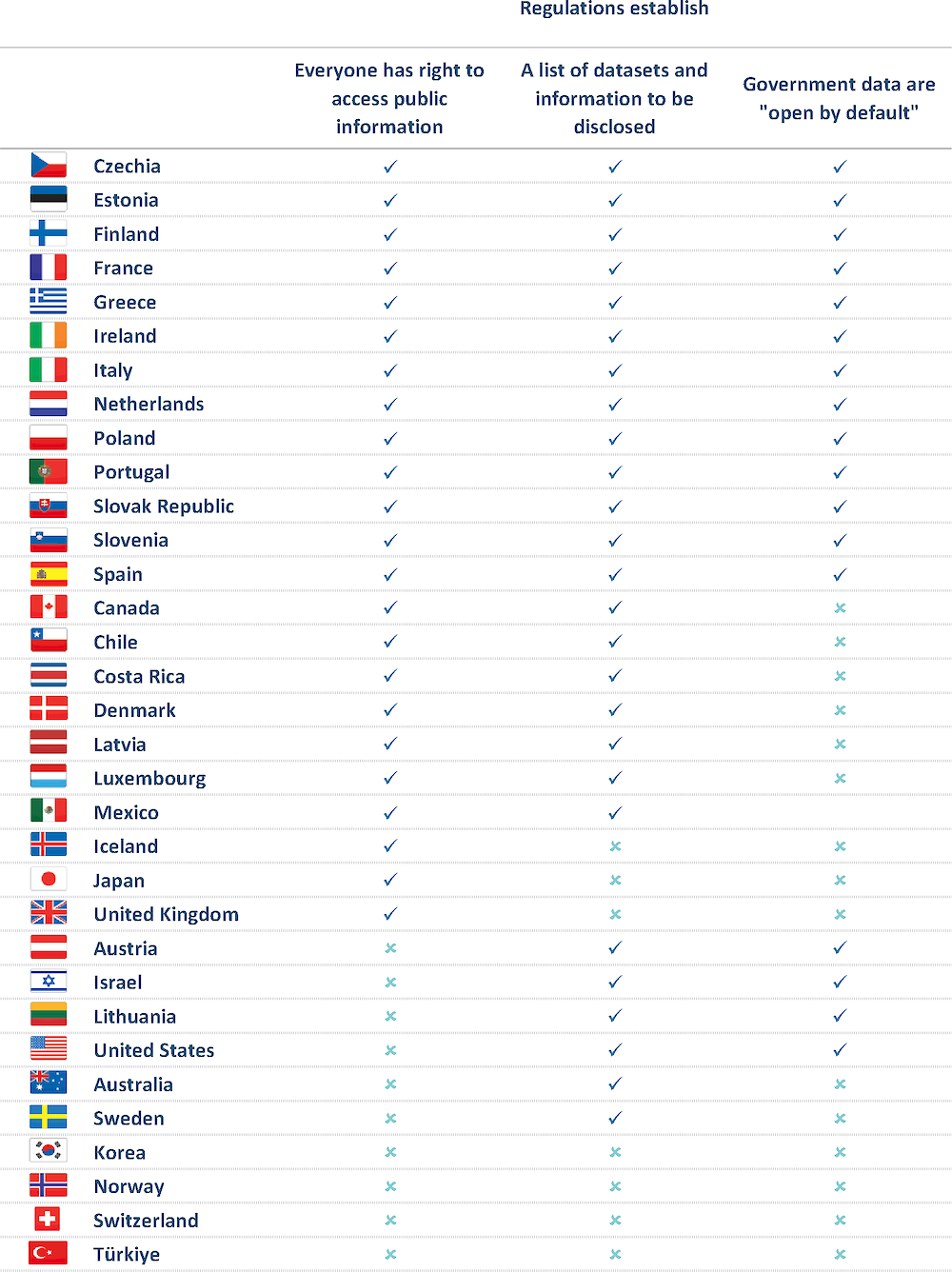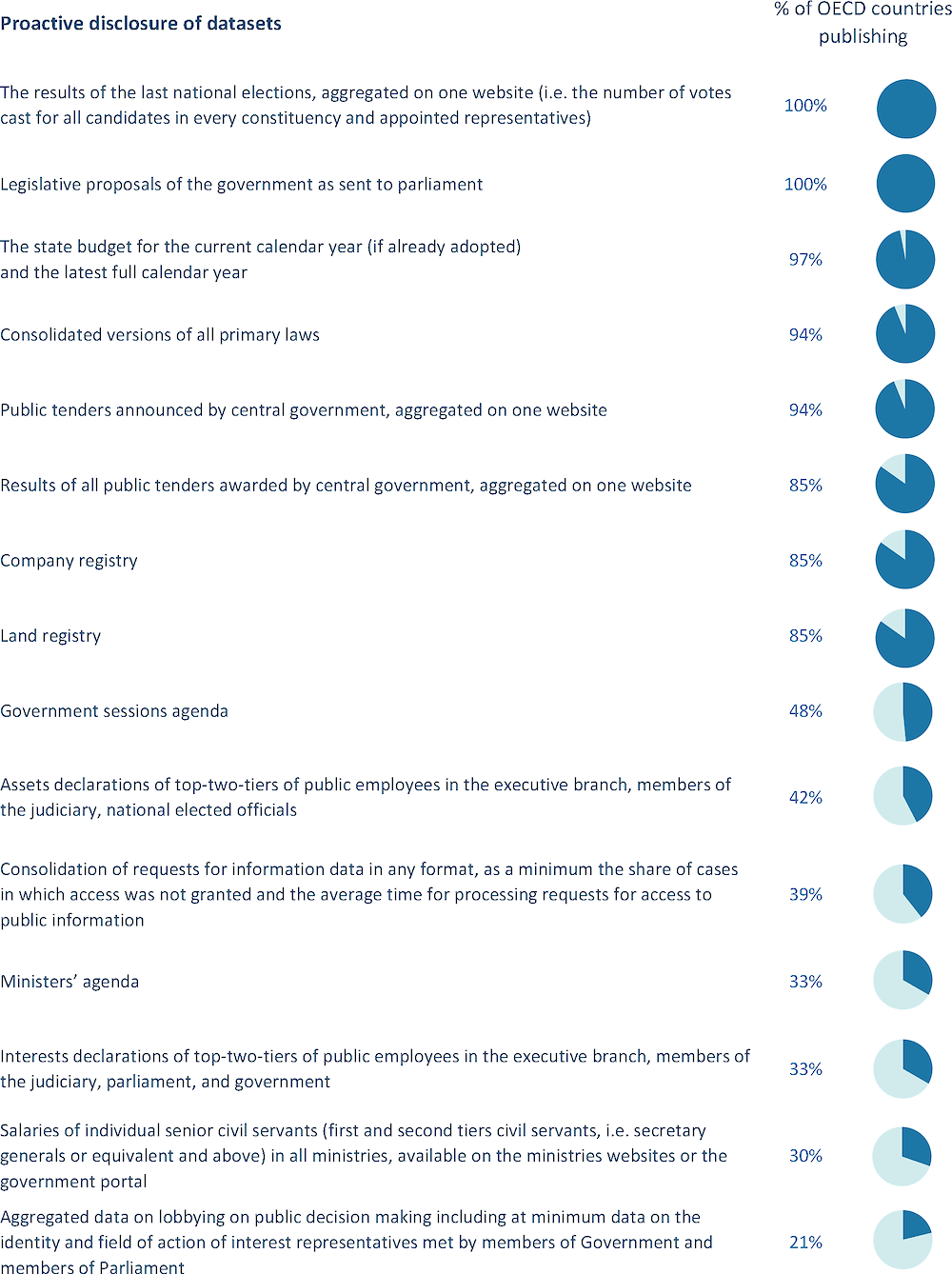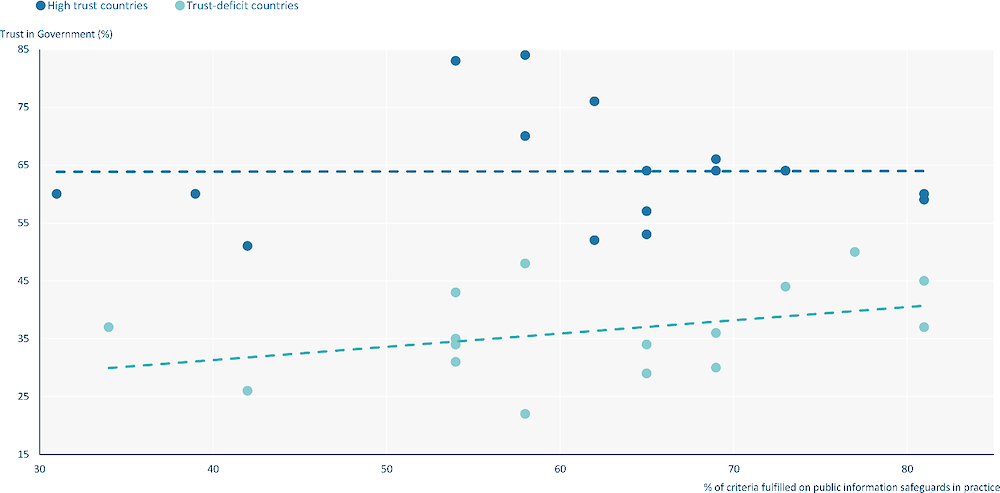Transparency is a core element of a functioning democracy and is underpinned by the right to access information, understood as the ability of an individual to seek, receive, impart and use information (OECD, 2022[42]). The OECD Recommendation on Open Government emphasises the importance of proactive disclosure of “clear, complete, timely, reliable and relevant public sector data and information” (OECD, 2017[43]). Likewise, the OECD Recommendation on Public Integrity encourages transparency and stakeholders’ engagement at all stages of the political process and policy cycle to promote accountability and the public interest, in particular through: a) promoting transparency and an open government, including ensuring access to information and open data, along with timely responses to requests for information; b) granting all stakeholders – including the private sector, civil society and individuals – access in the development and implementation of public policies (OECD, 2017[17]).
Providing access to public information strengthens public integrity by fostering transparency, thereby allowing citizens gain insights into their governments’ activities and oversight bodies and watchdog organisations to detect possible corruption or raise red flags. This in turn incentivises public officials to behave with integrity and increases accountability in public policymaking and public administration (OECD, 2020[12]). There is also a correlation between availability of public information and levels of public trust in government and satisfaction with public services. On average, 51% of citizens across countries who find information about administrative processes easily available trust their national government. Among citizens who find that information is not easily available, trust in national government is only 22% (OECD, 2022[6]). Importantly, transparency of public information is a core principle of democratic governance and acts as a key defence against the threat of foreign interference, as it enables greater scrutiny of the influences over policy and decision making in public institutions and safeguards against the effects of disinformation.
This chapter explores the state of play amongst OECD countries in enabling transparency of public information and pro-actively disclosing key datasets to business and citizens. It shows that:
OECD countries have strong regulations and institutions to promote transparency.
Publication of data or information related to upholding integrity are less frequently published.
Transparency matters, especially in low-trust contexts.




